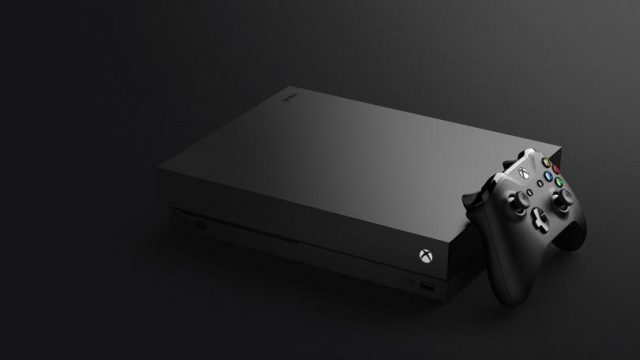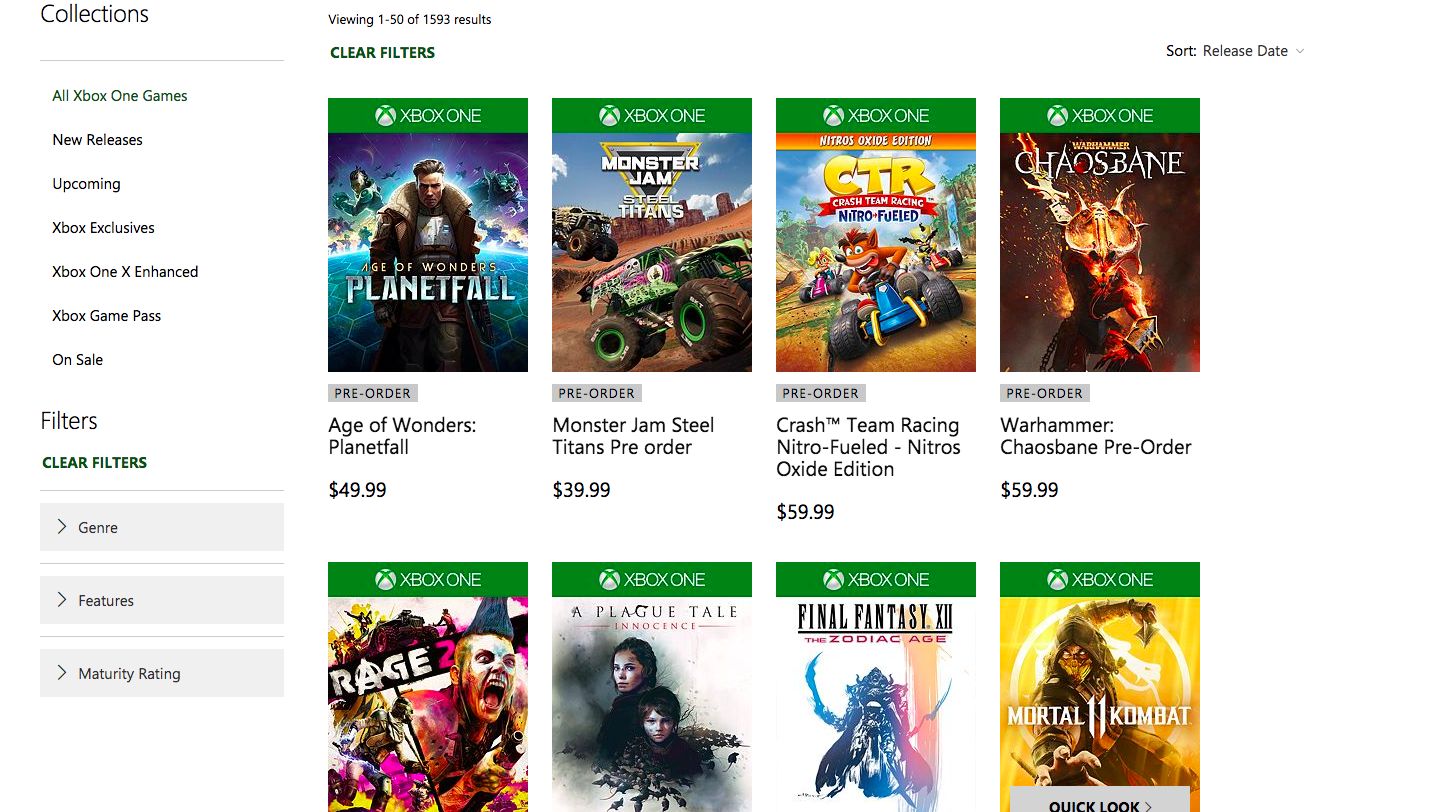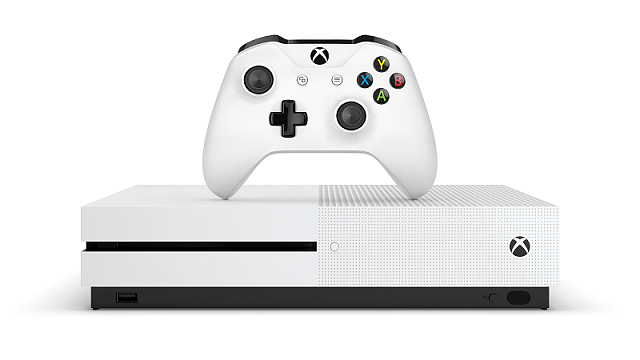In late 2018, rumors started leaking that Microsoft may be working on an all-new disc-less, digital-only Xbox One, and now, it seems that those rumors were in fact true. Windows Central recently reported that its sources have indicated that Microsoft has been working on a disc-less Xbox One and that its release date could be as early as May 2019. This would make Xbox One the only major digital-only console on the market.
Reportedly codenamed “Xbox Maverick,” the console will allegedly go by the name Xbox One S All-Digital Edition. Essentially, it is a smaller version of the Xbox One S, without the disc drive. Preorders are expected to go live in April 2019 before a May 2019 release, although no official release date has been given at the time of this article.
What exactly is the digital-only Xbox One?
It’s been pretty obvious that Xbox has been looking to move into a more digital-based service, with the launch of GamePass and Project xCloud. Releasing a digital-only console simply further supports its initiative to make games a more digital-only service. With GamePass, players have access to a library of over 100 games, including some new releases, for $10 a month. Let’s be honest, it is one of, if not the best deal in gaming.
Project xCloud is an initiative by Microsoft to make games available on all devices. Gone are the days when players are bound to a console. Essentially, with Project xCloud, you’ll be able to play games on any of your devices without being limited to one device. Additionally, you won’t have to physically own the game either; since it is a cloud-based service you can just download it and play. While Project xCloud is a bit of a way away, it is coming in some form or fashion this year.
It is pretty clear that the Xbox division of Microsoft is trying to set up two big things: shifting gaming to a digital-based medium with Game Pass, and making its brand more inclusive for gamers on a wide variety of devices, with Project xCloud. This will make the Microsoft Surface and other devices more compatible with the gaming industry.
Why I won’t buy the Xbox One All-Digital Edition

As a collector, I take a lot of pride in my collection of games, movies, tv shows, and collectibles. Digital gaming doesn’t compare to adding a physical game to my collection or getting that last game I need to complete a set. Something about seeing my collection of games on my shelf brings me joy in a way that I don’t get with digital-only games.
There is also something to be said about just holding the latest release in your hands. Whether you’re waiting at GameStop for a “midnight” release or waiting for your package in the mail, this excitement can’t be replicated by clicking download and waiting for an install. I want to rip off the plastic seal, crack open the case, smell the new game smell, and slide the disc into my console. There is just something magical about it.
There is also the major issue of game preservation. If the industry begins to shift to digital-only gamers, then fewer physical copies are going to be available. If one day 75 percent of the market is buying games digitally, it is going to be a waste of money for developers to make physical copies of games at their current rate. Selling games with fewer overheads is a no brainer for game publishers, but at what cost for gamers?
The problem with digital gaming

One day in the future, I want to be able to look back on my collection of game and play them again with my kids. If my library is all digital, I might not have access to those games in 20 years if for some reason Xbox, PlayStation, or Nintendo are no longer around, or if the video game industry hits hard times. All of a sudden, the massive amounts of money I have spent on my digital library could be gone.
And sure, maybe in 20 years when I look to buy a new game, I will be able to go and buy it from a game store (if they’re still around) or off of eBay/Amazon. However, what if due to most people buying games digitally, there was only a limited physical release and now the price of the remaining games is more than their current price? Or even worse, what if there was no physical release at all? If I had bought the physical copy of the game, I’d be spending no additional money on it and could play it instantly.
Then there’s the matter of the high cost of digital games. Why should I have to pay the same price to digitally download a game on the Xbox Store that I have to pay when I go to GameStop or any other retailer and pick up a game? At least when I am getting the physical copy, I am getting a nice box with artwork, a disc, and the ability to pass it on to someone else after I’ve finished playing it. You don’t get that with digital games, and there’s also the added problem of having to delete games in your library to make room for new downloads.
Google Stadia shows that the digital future is closing in
We need to value the physical copies of games, because if we don’t, who knows how much longer they will be around? With the way that the gaming industry is heading towards a digital future, it isn’t too difficult to image physical games becoming a thing of the past. With the recent announcement of Google’s cloud-based gaming platform, Stadia, this future is getting closer than many of us would have imagined.
If we get rid of physical games, it may be convenient in the short term, but the long-lasting effects could be devastating. Imagine a world where there were no physical copies of Super Mario 64, Ocarina of Time, or Super Mario World? The same could be said about newer games, like Red Dead Redemption, The Last of Us, or Portal 2. All of these games had a hand in shaping what the gaming industry looks like in 2019 and will have had a hand in shaping what the gaming industry looks like in 2029. If we let games become digital only, we risk losing pieces of history that helped form the industry that we know and love today.







